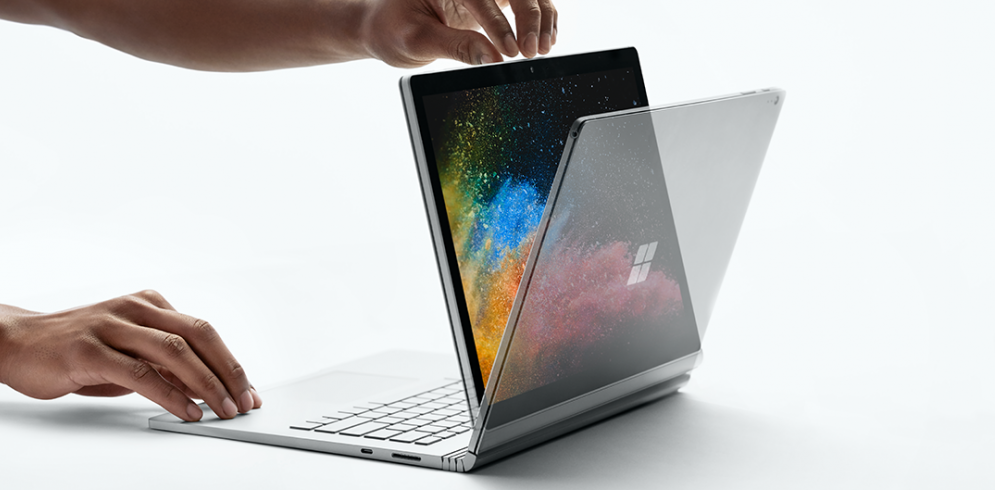
Microsoft Surface has helped Landsec to be as forward-thinking as its buildings
Developers behind some of the UK’s most well-known buildings are using Microsoft laptops to create the next generation of properties.
Staff at Landsec, one of the largest real estate companies in the UK, have ditched traditional ways of working in favour of Surface devices that allow them to shape ideas whenever and wherever they want.
Landsec’s assets include the Bluewater shopping centre in Kent, Brighton Marina, Gunwharf Quays in Portsmouth and London’s Piccadilly Lights.
The switch to Microsoft products is part of a wider transformation at the company to encourage activity-based working that gives people more access to collaborative spaces, smart technology and a variety of workstations – including standing desks and a treadmill desk.
“Future-proofing our industry starts on the inside, and our people need to be enabled and empowered to deliver their best work regardless of where they are,” said Alex Roth, Head of Information Systems at Landsec.
Roth said employees at Landsec were happier and more productive since they were given Microsoft devices, with collaborative spaces contributing to a 65% drop in printing and an 18% fall in emails.
“Booking a Surface Hub and having it recognise you as you walk into a meeting room is far more time-saving, environmentally-friendly and cost-effective than printing reels of paper. Plus, the Hubs work seamlessly with Surface laptops. I can review a document on a train and send it to another person before I’m even in the office.”
The use of Microsoft technology has also had a positive impact on health and wellbeing, Roth said.
Learn more about Surface
“Being able to provide people with lightweight Microsoft devices to work in a way and place that best suits them helps contribute to better physical and mental wellbeing – people are happier to be at work and it helps to boost productivity.
“Walk into our office today and you will see at least a third of our people in groups of more than two. Because we’ve got the space and the technology, they don’t want to just email each other; they want to pick up their Surface and go. “
Roth said introducing Surface devices was a “massive tick in the box” for changing how employees work and think about their jobs.
Sally Elliott, Surface Strategy Lead at Microsoft, agreed that the technology company’s range of devices can shake up traditional offices.
“According to the World Economic Forum, creativity will be the third most important skill workers will need in 2020,” she said. “It’s important that companies have the right culture, technology and spaces to foster that creativity.
“Surface devices are freeing up people’s time. Now, staff are not just meeting to talk about a project that needs to get done, the meeting is when they get stuff done.”
Elliott pointed to the security issues that some companies can face when they let staff bring any device into the office. Some Surface devices have 4G capabilities, “so you know you’re authenticated and the connection is secure”.
“Windows 10 offers advanced threat protection and helps users adhere to regulations, which is crucial following the introduction of GDPR,” she added.
“I’m a working mum and I have different devices depending on what I’m doing. When I’m going to the office I rely on my Surface Laptop because it’s lightweight, I don’t have to take my battery pack with me, it snaps shut, it’s robust and it looks cool. At home I have a Surface Book 2, which is a powerhouse device, so I do all my creative reviews and work with video agencies on that. It’s perfect for lawyers, architects and creators.”



